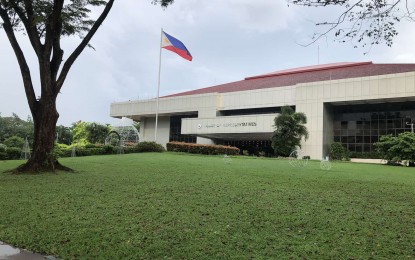
MANILA – The House of Representatives on Monday started its plenary deliberations on the resolution proposing amendments to the “restrictive” economic provisions in the 1987 Constitution
In his sponsorship speech, House Committee on Constitutional Amendments chair Alfredo Garbin Jr. stressed the need to pass the Resolution of Both Houses Number 2 (RBH 2) to give the government the freedom to adopt measures that will pave the way for economic development.
He said amending the Constitution by adding the phrase 'unless otherwise provided by law' would provide the government enough flexibility to consider different circumstances prevailing at different stages toward economic development.
He argued that the restrictive economic provisions in the Charter have “proven to be a bane, rather than a boon for the country” as they discouraged the flow of foreign direct investments.
"While these provisions may be very well-meaning and appear to favor the interests of Filipinos, over the long haul, the country and the common good of all Filipinos suffer," he said.
He said the proposed amendments would eliminate the “overly protective” provisions--such as foreign ownership limitations in business enterprises, including public utilities--to attract more foreign investments and to adopt policies to enable the country to compete more effectively in the global economy.
On Feb. 2, the House Committee on Constitutional Amendments had voted 64-3-3 to adopt RBH 2.
The proposal, which is principally authored by Speaker Lord Allan Velasco, aims to amend certain economic provisions of the Charter, particularly Articles XII (National Patrimony and Economy), XIV (Education, Science, Technology, Arts, Culture and Sports), and XVI (General Provisions).
It seeks to insert the phrase “unless otherwise provided by law” to several sections of the Constitution, which restrict foreign ownership of public utilities, educational institutions, media, and advertising. The panel dropped the proposal to allow foreign ownership of land.
Albay Rep. Joey Salceda, another sponsor of the resolution, said the Philippines not only had the tightest foreign direct investment (FDI) restrictions but also had the fewest doors to attract FDI stock.
“The Philippines has locked itself out of significant foreign investments, and therefore job creation. We have spent hundreds of billions of pesos in foregone revenue for tax incentives when we have not tried a simpler, cheaper solution: opening industries in need of capital to foreign investment through legislative action,” Salceda said.
He said the mere act of lowering FDI restrictions actually attracts FDIs.
“There is time, and there is an opportunity for us to catch up. As the economy grows, there remains immense FDI growth potential in the Philippines as we liberalize FDI,” he said.
He said the country would be able to strongly bounce back after the Covid-19 pandemic if FDIs can be part of the recovery strategy. (PNA)
